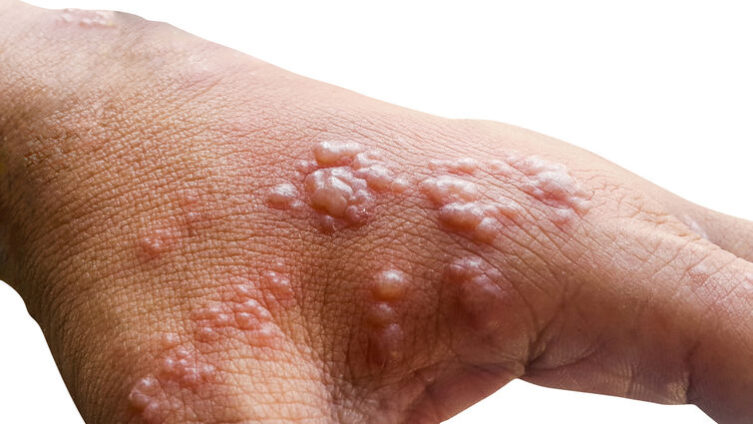The Ghana Health Service (GHS) has confirmed a case of monkeypox in the Bia West District of the Western North Region.
The patient, a 15-year-old boy, sought medical attention on September 25, at a district government hospital after experiencing fever, body pains, a sore throat, and a rash on his palms and face.
In a public health advisory issued on Thursday, October 3, the GHS also reported that 230 suspected monkeypox cases have been identified across 88 districts nationwide.
The agency is urging the public to remain alert and adhere to safety protocols to prevent further spread.
As part of containment measures, health officials have identified 25 individuals who had close contact with the patient.
These contacts are currently being monitored closely to prevent any potential outbreaks in the region.
The GHS has launched a public health investigation into the confirmed case, working to trace and manage the suspected cases.
Additionally, the service will notify the World Health Organisation (WHO) per global health response protocols.
To control the virus's spread, the GHS is emphasising public cooperation with health guidelines, including proper hygiene practices and timely reporting of symptoms such as fever and rash.
About Monkeypox
Mpox is an infectious disease that can lead to a painful rash, swollen lymph nodes, fever, headaches, muscle aches, back pain, and fatigue. While most people recover fully, some may become severely ill.
The disease is caused by the monkeypox virus (MPXV), an enveloped, double-stranded DNA virus from the Orthopoxvirus genus, part of the Poxviridae family. This family also includes viruses like variola, cowpox, and vaccinia.
The virus exists in two distinct clades: clade I, which is further divided into subclades Ia and Ib, and clade II, which includes subclades IIa and IIb.
A global outbreak of clade IIb began in 2022 and continues to affect regions worldwide, including several African countries.
Latest Stories
-
The Republic of Double Standards: Why you can chop at 16 but can’t carry the chop box to marriage until 18
11 minutes -
Ghana Para Athletics Association launches nationwide talent hunt to discover future champions
19 minutes -
FoSCel hosts national forum on Sickle Cell at UEW: Calls for unity, awareness and policy action
56 minutes -
‘I dreamt of scoring my debut goal against Nigeria’– Lawrence Agyekum
60 minutes -
‘Nothing tells me we won’t qualify’ – Stephen Appiah confident in Black Stars’ World Cup chances
60 minutes -
Ablakwa urges Israeli Ambassador to respect Ghana’s sovereign right to make independent decisions
1 hour -
We will give everything to qualify for 2026 FIFA World Cup – Lawrence Agyekum
1 hour -
Advisory | Ghana’s credit ratings upgrade: A vote of confidence, but not a passport to borrow
1 hour -
Health Accounting Staff Association agitates over delayed negotiations
2 hours -
Joy Prime launches ‘PrimeTime’ with George Quaye, as Samini sets tone with bold remarks on justice and leadership
2 hours -
More businesses set to reduce prices from July 1, 2025 – GNCC CEO
2 hours -
Government urged to extend validation for payment of trainee nurses and midwives’ allowances
2 hours -
Afreximbank Chief Economist urges Ghana to lead Africa’s trade agenda ahead of IATF 2025
2 hours -
Foreign Minister engages Israeli and Iranian Ambassadors over Middle East conflict
2 hours -
First batch of Ghanaians evacuated from Iran to Turkey
2 hours

